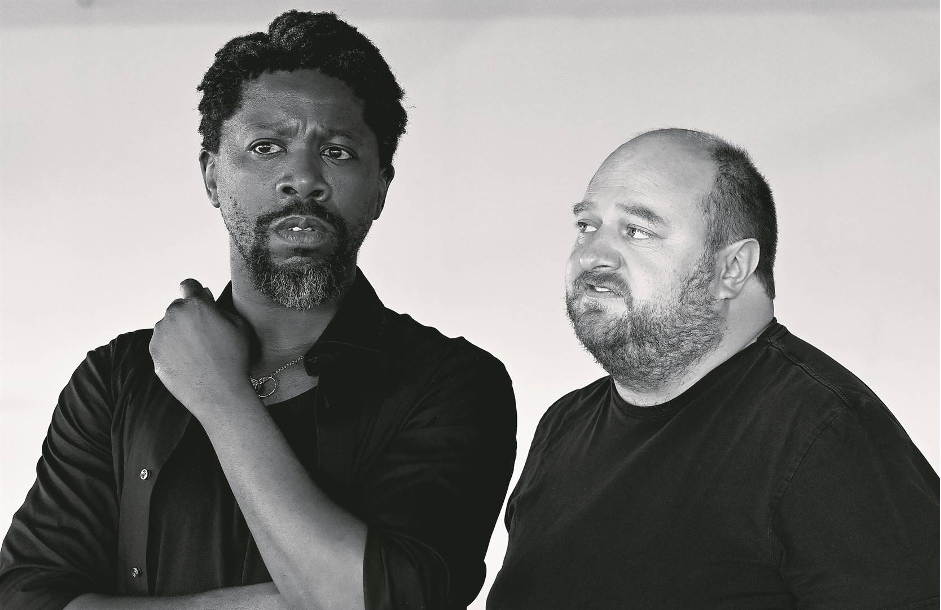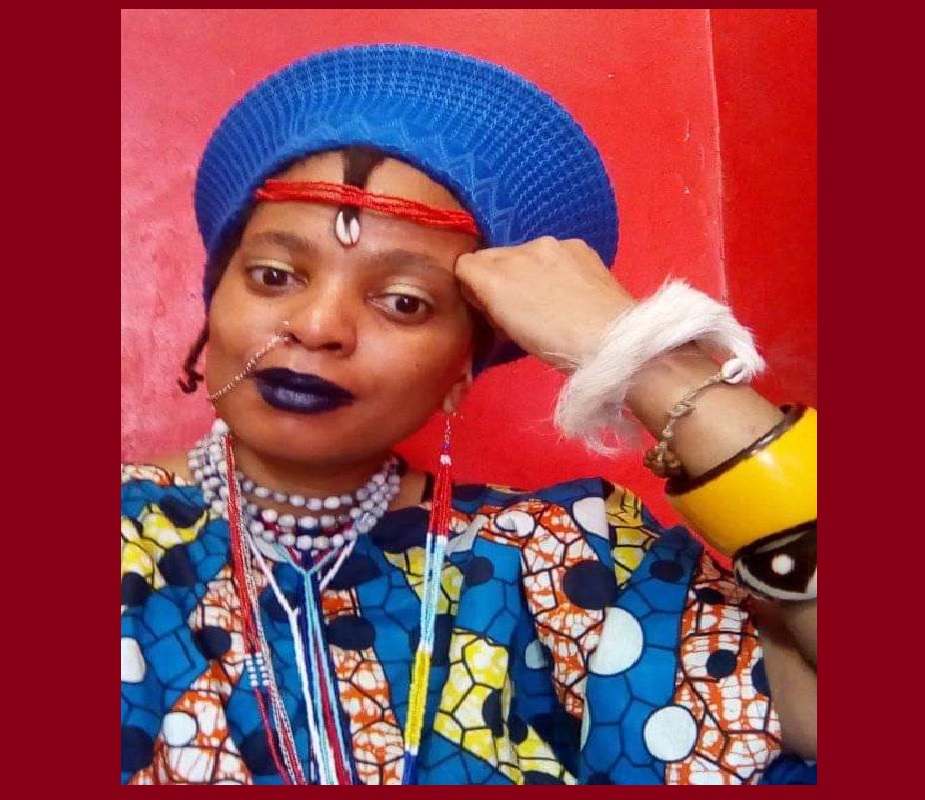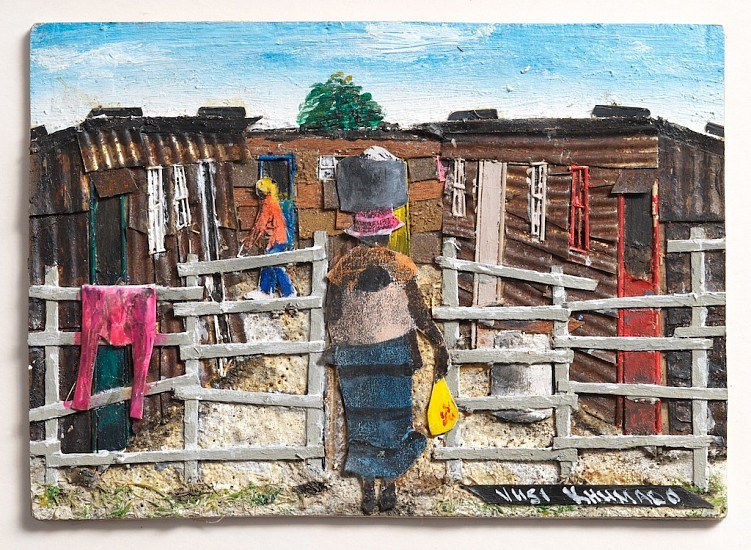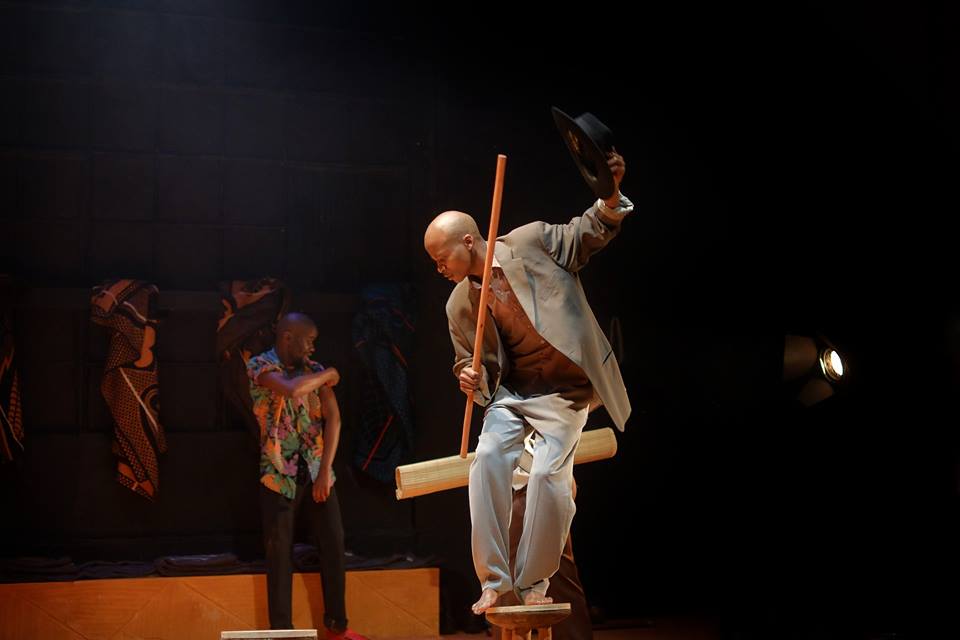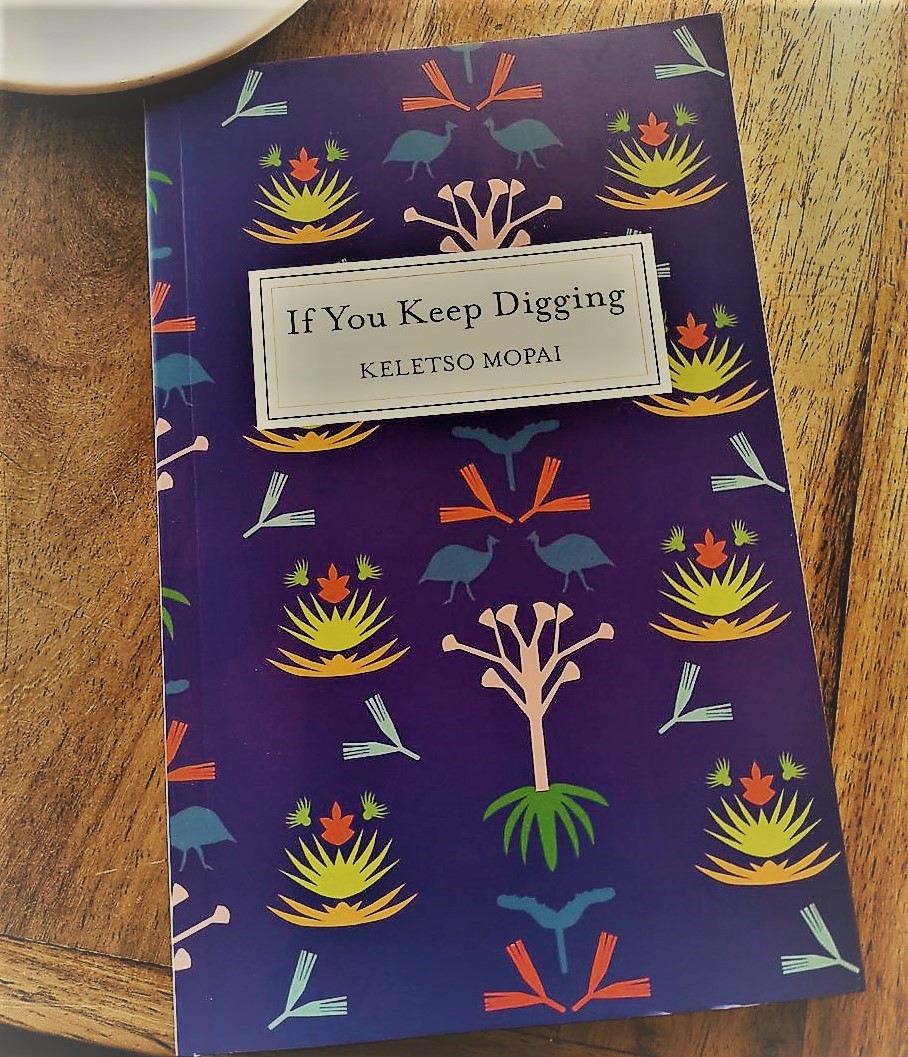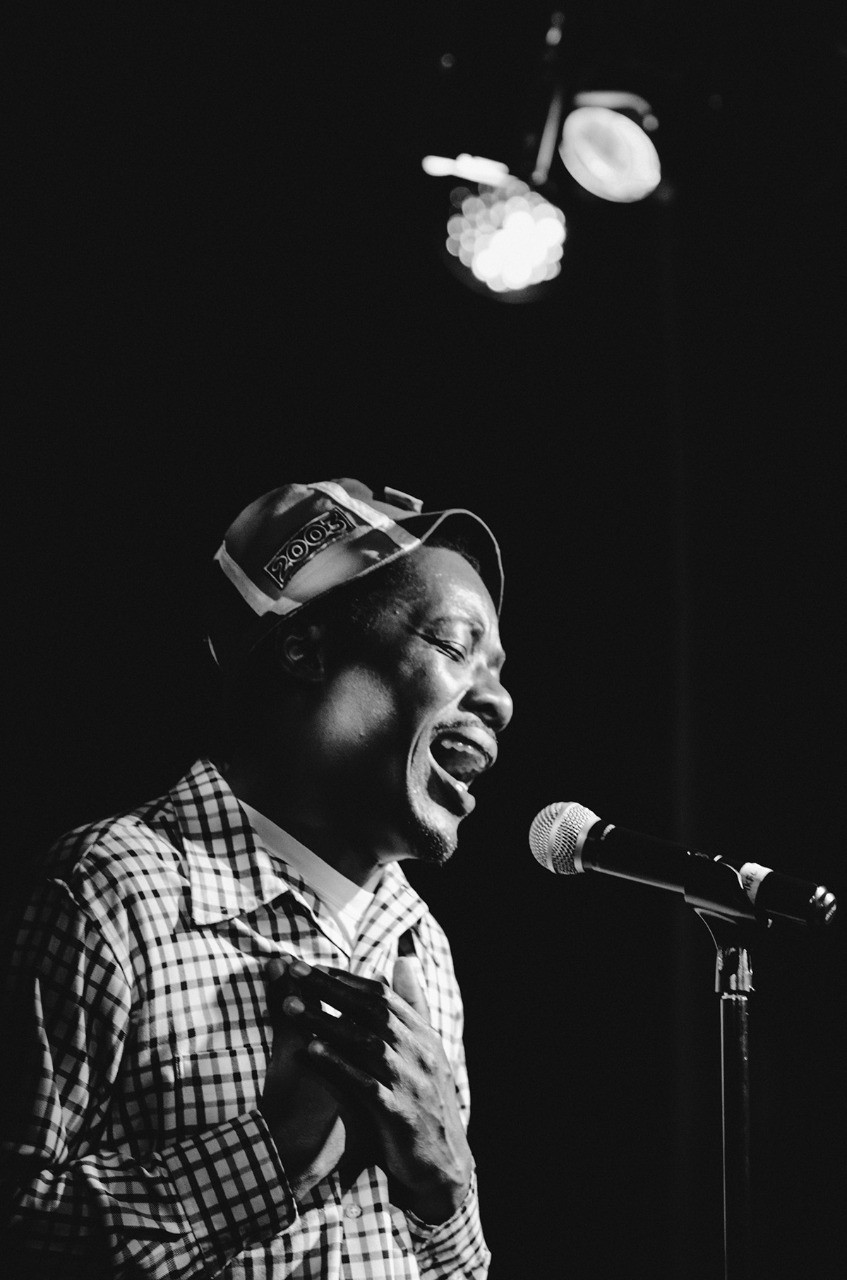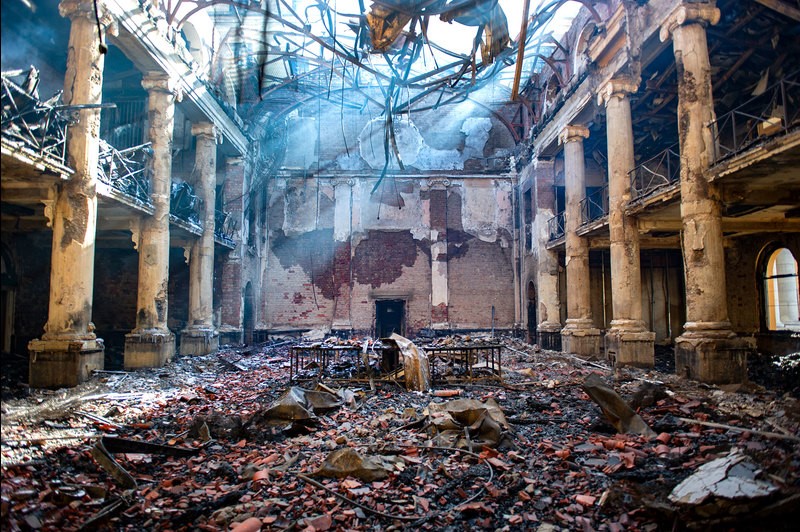Friday the 12th of April 2024. The Baxter Theatre foyer is populated by theatre enthusiasts and practitioners alike, all shine-eyed and expectant. We are here to see Lara Foot's “Othello”, with Atandwa Kani taking on the lead role, though most would argue that it's Iago who should be considered the lead, given how influential his role is to the storyline. In that case, the honour belongs to Albert Pretorious. For context, this Shakespearian tragedy chronicles the betrayal of black army general Othello by his trusted flag-bearer, Iago, who- driven by envy and sheer malice‐ manipulates his superior into murdering his wife, leading to his dishonourable dismissal and inevitable descent into social pariahdom…
I want to start off by admitting how I wrote some of my best high school essays analysing this text, and so am pleasantly surprised to find that 24 years after the fact, there are complete chunks of it which my brain has yet retained. Though the jury may still be out on whether this historically-revered bard actually penned his own works, credit is nonetheless due to him or his ghostwriter for such evocative and timeless writing!
The opening scene starts with a clandestine conversation between Roderigo (played by Wessel Pretorious) and Iago (played by Albert Pretorious), the diabolical insign revealing to the wealthy Venetian the extent of his abhorrence for his general, sprouted by Othello favouring Micheal Cassio (played by Carlo Daniels) for the role of his lieutenant, coveted by Iago. In what must be noted as the first revelation of his malicious intent, Iago denounces his lieutenant's ‘soldiership’ as ‘...mere prattle without practice…’, admitting that he would rather be his hangman than his ancient. Meanwhile, the unsuspecting Othello, a man rendered devoid of agency and sophistication despite his high rank, proclaims his subordinate honest… shem!
There are many moments of hilarity between the two, mostly owing to how easily Roderigo's naivete allows Iago to defraud him and keep him under the illusion that he stands a chance with the fair and chaste Desdemona (played by Carla Smith). Alas, the lady is wed to the self-same Moor, and in a moving monologue inScene 3, professes before her father, Brabantio and the court, how her husband won her heart with “... his tales of war and moving accidents…” Yet throughout the play, Roderigo proves a puppet in Iago's hands as the latter craftily syphons extortionate amounts of money and gold from him, enriching his own coffers and fueling the foolish bachelor's hopes by promising to plead his case with his boss’ lady.
An unreprised opportunity slips through Foot's hands when one of the earlier scenes sees the Duke of Venice (played by Brandon Murray) in the company of army generals, speculating over a map of Africa, deliberating upon their conquests. What could have been commentary on the deleterious impact of colonialism on the African continent, though apparently lauded by UCT's Dean of Humanities, Professor Shose Kessi, as “...an ambitious and provocative decolonial interpretation of the original piece…”
(Newslin: Lara Foot Adapts and Directs Othello) does little to tally the losses. My scepticism about this statement teeters towards reluctance, given how there seems no evidence of any leanings towards making a political statement in support of decoloniality in the interpretation, especially not in that moment. If anything, this rendition is true to the 1800s in its adherence to the racial hierarchies of master and servant, particularly evidenced in the roles of Faniswa Yisa as Desdemona's handmaiden (who is also Iago's wife) Emilia, amplified further in Nolufefe Ntshuntshe and Awethu Hleli's lesser roles as handmaidens.
In my quest to comprehend how this text should potentially be framed as social commentary on the current status quo of the continent, the fact of Othello being a black man accused of murdering his white wife would have provoked discourse on South Africa's underlying racial prejudices and the general air of distrust that lurks between us as a residue of our unresolved past. What still of the alarming GBV pandemic, which sees women losing their lives at the hands of their partners? Or maybe the demonisation of the black man, as constantly exercised by the global media…
I digress. Mine is to note the problematics of our theatre scene’s culture of gratuitous praise even when such is minimally justifiable…
My general discomfiture with this interpretation hinges mostly on my struggle with the vagueness of place. Whereas the synopsis claims Foot's version to be set in Namibia, the lack of any distinctions to justify this claim makes me uneasy. What we get instead is an ethnographic ‘somewhere in the dark continent’. Hear me out: save for the use of Afrikaans in the dialogue, the incorporation of isiXhosa, though commendable in its inclusivity, belies that proposition, as amaXhosa are not historically known to have settled in that territory. Granted, a director is obligated to maximise on the skills of the cast and none there present speak, to my knowledge, any Nama, Oshiwambo, !Xun, Silozi, SiTswana or Rukwangali. I do wonder if by not opting to set the story closer to home, we missed out on an exploration of the relations between the Dutch and amaXhosa, the Khoe and other enslaved humanities, given the Cape's history. At a time when history desperately needs to subvert the erasure of the oppressed, I'm perplexed by what appear to me tone-deaf oversights regarding cultural and linguistic context. This is the cultural vacuum decried by Ngugi wa Thiong'o's “Decolonising The Mind” when he argued; “The language carries the culture, and it's the culture that carries, sustains, and supports the language”. In this case, the lack of specificity serves as a subversion of linguistic (ergo cultural) context where concerns the native people of Namibia. Manditshaye, bethu!
Still on the topic of language, my initial delight at discovering that Atandwa Kani is to play Othello is short-lived. Nobody who's aware of his credentials as a thespian who's paid his dues on the theatre stage can dispute that he's a chip of the old block. His is an illustrious resume, further brightened by his commendable undertaking of the role of T'chala in 2022's “Black Panther: Wakanda Forever.” An obvious draw card on any cast, his is a name guaranteed to put bums on seats. Capable and charismatic an actor though he may be, his lack of fluency esiXhoseni nearly kills his performance. In the face of this Achilles heel, we see him exerting himself self-consciously, if not painstakingly. I may or may not have Lauryn Hill's ‘This could all be so simple/ but you'd rather make it hard’ echoing in my head the majority of the time…
My point? IsiXhosa is a tonal language, with words often losing meaning when emphasis is negated. For instance, there are two ways to pronounce ‘Lulama’, one a verb denoting the act of benevolence and pronounced the same way when used as a boy's name, while the other is a girl's name of similar meaning. This is to say the mispronunciation of one too many words (e.g ‘Qamata’) proves distracting.
The disparity between the treatment of Shakespear's heightened text and that afforded the isiXhosa translations causes me to question what barometers are put in place to maintain a consistent standard of quality control. As stringent as the requirements are in casting actors who are proficient in the English language, should we not demand the same for our African languages in their written and spoken application? When observances such as honorifics (‘Bhut’ Cassio, Sis’ Desdemona’) are misappropriated and misaligned with the proposed era, should not the writings of the likes of Tiyo Soga, S.E.K Mqhayi, John Tengo Jabavu, William Wellington Gqoba, Water Rubusana et al have been consulted for accuracy? In the absence of such studious research, informal, contemporary verbiage slips through the cracks.
Speech and vocal coaching, where necessary? We can little escape the severed links with our mother tongues we continue to suffer as a direct consequence of our historical and current dispossession as black South Africans. Oftentimes, we simply don't know what we don't know. There are considerations such as dialect, colloquialism and accent, into which a more thorough investment would've proven beneficial in hoisting olu lwimi lwethu lenkobe up so it stands on par with English. This is the role of scholarship: striking the balance between the theoretical and the pragmatic…
My limited comprehension of Afrikaans and Dutch doesn’t permit me to comment with any authority as to whether this lofty ideal is achieved in the incorporation of those languages to the script.
I have no doubt in my mind that international audiences will relish the quirks that come with this adaptation. Had the decision to homogenise this text to the nuances and complexities of Africa, the marked differences in areas such as vocal placement, resonance, enunciation, grammatical devices, the effective use of iambic pentametre, et. cetera, would be rightfully substantiated. As a multilingual English speaker whose point of derivation into English – much less Old English – divorces me from any loyalty to accurate mimicry, this is not a cross to which the players should be nailed. How about pushing the envelope by abandoning our allegiance to the crown and intentionally breaking the language?
The first half of the play leaves me wanting. Despite the fluctuating rhythm and pace of the scenes, I await the sense of a vertical drop with baited breath. The scenes feel long and the themes overstated, honestly. You know how when you were young, you'd make your younger sibling hold an elastic band and stretch it to breaking point, then release it and feel gratified when it snaps and sends your obnoxious little side-kick screaming? No? Well, still, the elastic is just too durable here.
The action in the second half is better modulated. The beats are well calculated and well-played, the ball constantly rolling.
As an ensemble, the cast plays well together. The synergy between Carla Smith and Faniswa Yisa makes for a believable relationship. So too are the riotous quips between the latter and Albert Pretorious in his role as her divisive husband. Carlo Daniels delivers on the physical theatre front in his drunken scenes as Michael Cassio, while Caleb Swannepoel, Morne Visser, Lyle October, Awethu Hleli and Nolufefe Ntuntshe commit fully to their multiple roles. And of course I snap my feminist fingers when Tamzin Williams defends herself against Emilia for calling her a strumpet!
From Albert Pretorious, I wanted more in his role as the villainous knave. Having seen him undertake that same role in his varsity final year (UCT Drama School, circa 2007/8) with Pakamisa Zwedala as his Othello, his abilities are hardly a matter of dispute. My gripe lies in how comfortable he seems in the role, with little inclination towards risk taking. Granted, this interpretation in general scapegoats the tragic with the comedic to a flaw, so it wouldn't be fair to attribute the blame to this actor. There are just too many instances where the severity of the moments pale in comparison to the bold slapstick choices. This is not to say I don't revel in the mirth, no ma’am! Good actors prove even better when challenged, that's all.
Kyle Shepherd's composition underscores the dramatic tensions of the story wonderfully, particularly shining in the second half of the show. Patric Curtis’ lighting design does the things in enhancing the atmosphere and adding depth to the scenes unfolding before us. Gerhard Marx’ set design is memorable in its rustic minimalism. The rocks held up by strings, oscillating mid-air and finally descending with a thud in the final scene? Come on! ‘Ate’, as the kids say. Speaking of the final scene, Kani plays the big moments excellently and this is one of those. He sits comfortably in grief, regret, damnation and all things base and macabre.
I'm glad I saw this show and encourage everyone who cares about translation, interpretation, adaptation, and what these could look like on the stage, to not miss it. Go see it to support the talented actors who get to earn a living from their skills in these capricious financial times, as well as to feed your nostalgia for the hyacinth days when we colonial subjects bravely took on ‘the classics’ (a diatribe for another day, friend!) and displayed our mettle and aptitude for the rigors of ‘civilisation’. You have until 7:30 pm on the 4th of May (the eve of my birthday) to grab a ticket at a price range of R200 to R290 via Webtickets and get your tush to the Baxter Theatre's Pam Golding Theatre. Then you can come back, buy me a single malt whiskey double or a glass of dry red and chew the vegan curd with me!

